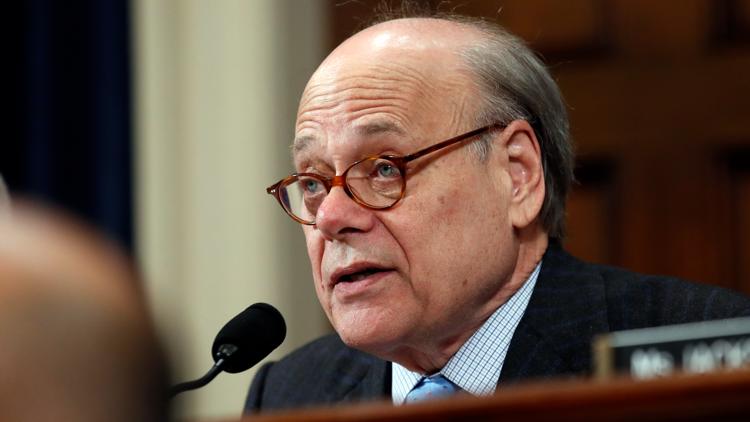MEMPHIS, Tenn. — Memphis representative Congressman Steve Cohen (D- Tenn) called for a more "comprehensive measure" on the Antisemitism Awareness Act which was passed by the House on Wednesday. Cohen says he "understands reservations'' about the free speech implications of the act, but voted to pass it regardless.
"I think it's a more inclusive bill, a broader bill," said Cohen, who was part of the Tennessee Holocaust Commission from 1984 to 2006. A representative of Memphis, he is the only Democrat from Tennessee in the U.S. House of Representatives.
The House passed the Antisemitism Awareness Act (H.R. 6090) in a bipartisan push, 320-91. Led by Rep. Mike Lawler (R-N.Y.), the bill had 15 Democratic co-sponsors.
As both Republicans and Democrats voted for the bill, those who opposed were also members of both parties, saying the bill infringes on free speech.
The measure itself focuses on anti-Jewish discrimination and it mandates the Department of Education to use the International Holocaust Remembrance Alliance definition of antisemitism when enforcing federal discrimination laws.
The alliance describes antisemitism as calling or justifying the killing or harming of Jewish people, making dehumanizing or stereotypical allegations or denying the Holocaust. However, the group also says antisemitism is "claiming that the existence of a State of Israel is a racist endeavor" or "drawing comparisons of contemporary Israeli policy to that of the Nazis."
This comes after colleges all over the country started protests calling for universities to divest from Israel. On Tuesday night, NYPD arrested 300 in Columbia University and the City College of New York, as students were conducting peaceful pro-Palestine protests. Around the same time, counter-protestors attacked a peaceful pro-Palestinian encampment at the University of California, Los Angeles (UCLA).
While talking about the bill, Cohen pulled focus away from the college campuses, focusing instead of other social movements that were openly antisemitic.
“In 2017, in Charlottesville, there were national socialist movements... Klan members and all kinds of right-wing antisemitic crowds – racist skinheads... they marched around saying ‘Jews will not replace us’ and President Trump said there were ‘good people on both sides’ well there are good people on both sides in Columbia but there were no good people on both sides in Charlottesville," said Cohen. "That antisemitism needs to be addressed and has not been addressed."
Politicians have largely accused college protests for antisemitism, including President Joe Biden as he condemned "antisemitic protests" and House Speaker Mike Johnson who said that "Columbia is out of control," following Tuesday's nights events.
Yet, student protestors maintain that their protest is not against Jewish people, but against actions by the State of Israel, with many encampments having Jewish students actively participating in the pro-Palestinian protest.
If passed by the Senate and signed by Biden, the American Civil Liberties Union (ACLU) said the bill "would likely chill free speech of students on college campuses by incorrectly equating criticism of the Israeli government with antisemitism," who sent a letter urging Congress to oppose the act on April 26.
"There have been so many instances in history that have come not from these Palestinian supporters but from skinheads, neo-Nazis and Klans and that needs to be addressed," said Cohen on the House floor on Wednesday.
ACLU said that federal law already prohibits antisemitic discrimination and harassment by organizations that receive federal funding, yet leaders of the Antisemitism Awareness Act say it is not enough.
"I think any legislation that we can bring forward to combat antisemitism is critical," said Lawler, in talks with Cohen. "I think the objective is to clearly define antisemitism and force accountability on these administrators and make sure the Department of Education has the teeth to enforce the 1964 Civil Rights Act."



